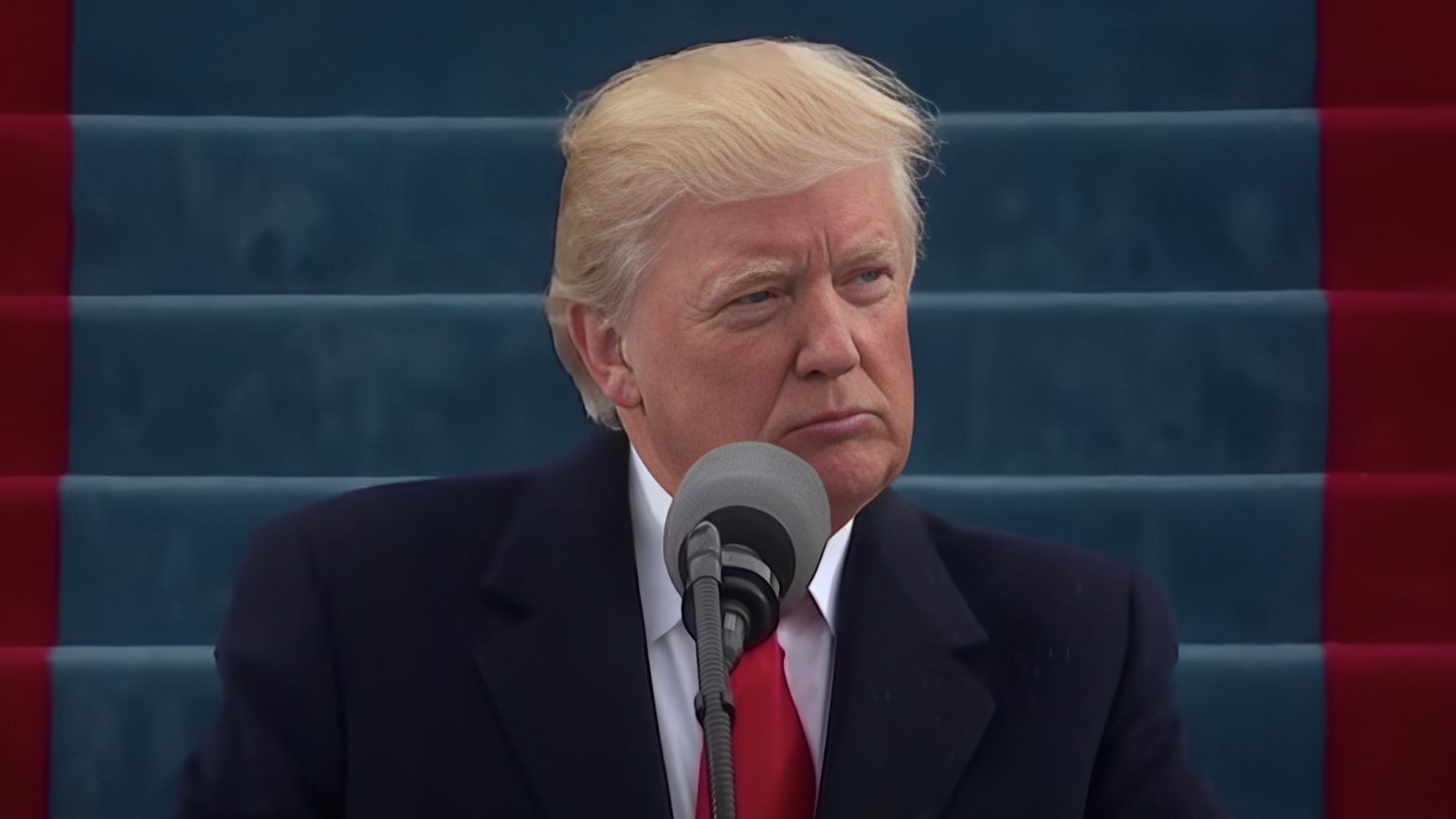Twitter Files highlighted how the platform changed its policy to justify banning President Trump following the January 6, 2021, riot at the US Capitol. The latest batch of the files was published by independent journalist Michael Shellenberger.
“The Removal of Donald Trump: January 7,” Shellenberger began the thread. “As the pressure builds, Twitter executives build the case for a permanent ban.”
“On Jan 7, senior Twitter execs: – create justifications to ban Trump – seek a change of policy for Trump alone, distinct from other political leaders – express no concern for the free speech or democracy implications of a ban,” he continued.
Shellenberger started by showing how Twitter had resisted calls to ban Trump, from public figures like former First Lady Michelle Obama. However, the company appears to have caved to the pressure and changed a long-standing policy to justify banning the sitting president.
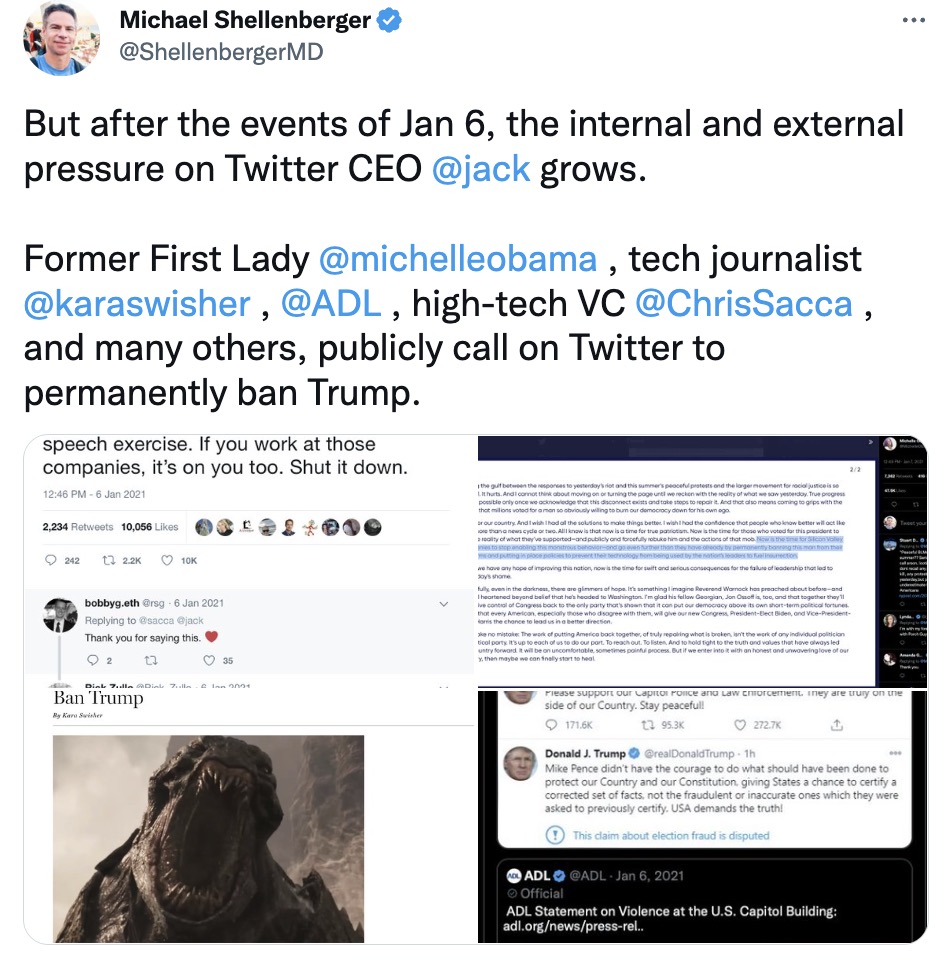
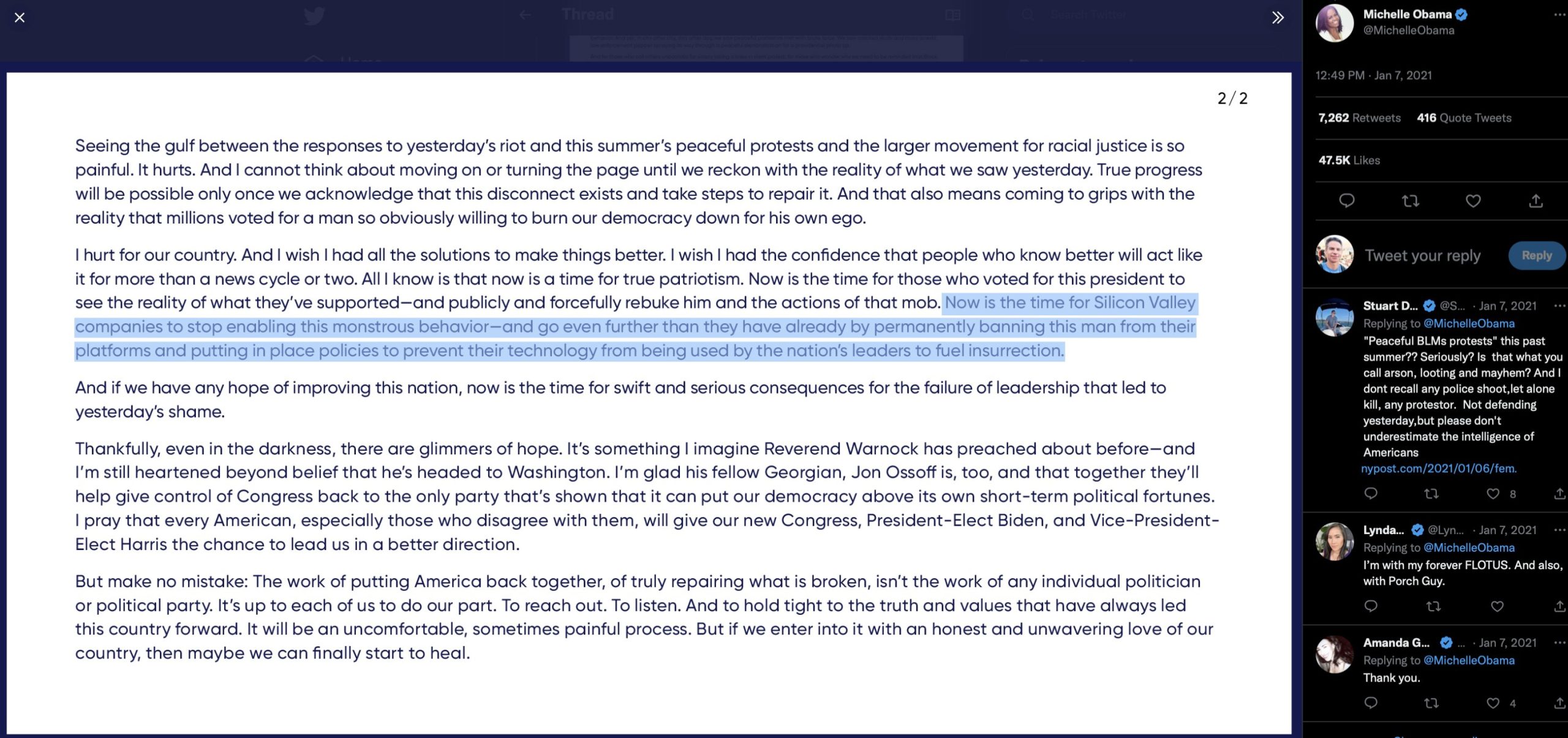
At the time, then-CEO Jack Dorsey was on vacation and had delegated most of the responsibility to senior executives, including former head of trust and safety Yoel Roth. In the thread, Shellenberger said that Dorsey sent an email to staff on January 7 telling them to “remain consistent” with policies “including the right of users to return to Twitter after temporary suspension.”
But internal messages show Roth telling his team that “people who care about this aren’t happy with where we are.”
“Around 11:30 am PT, Roth DMs his colleagues with news that he is excited to share,” Shellenberger tweeted. “‘GUESS WHAT,’ he writes. ‘Jack just approved repeat offender for civic integrity.’ The new approach would create a system where five violations (“strikes”) would result in permanent suspension.”
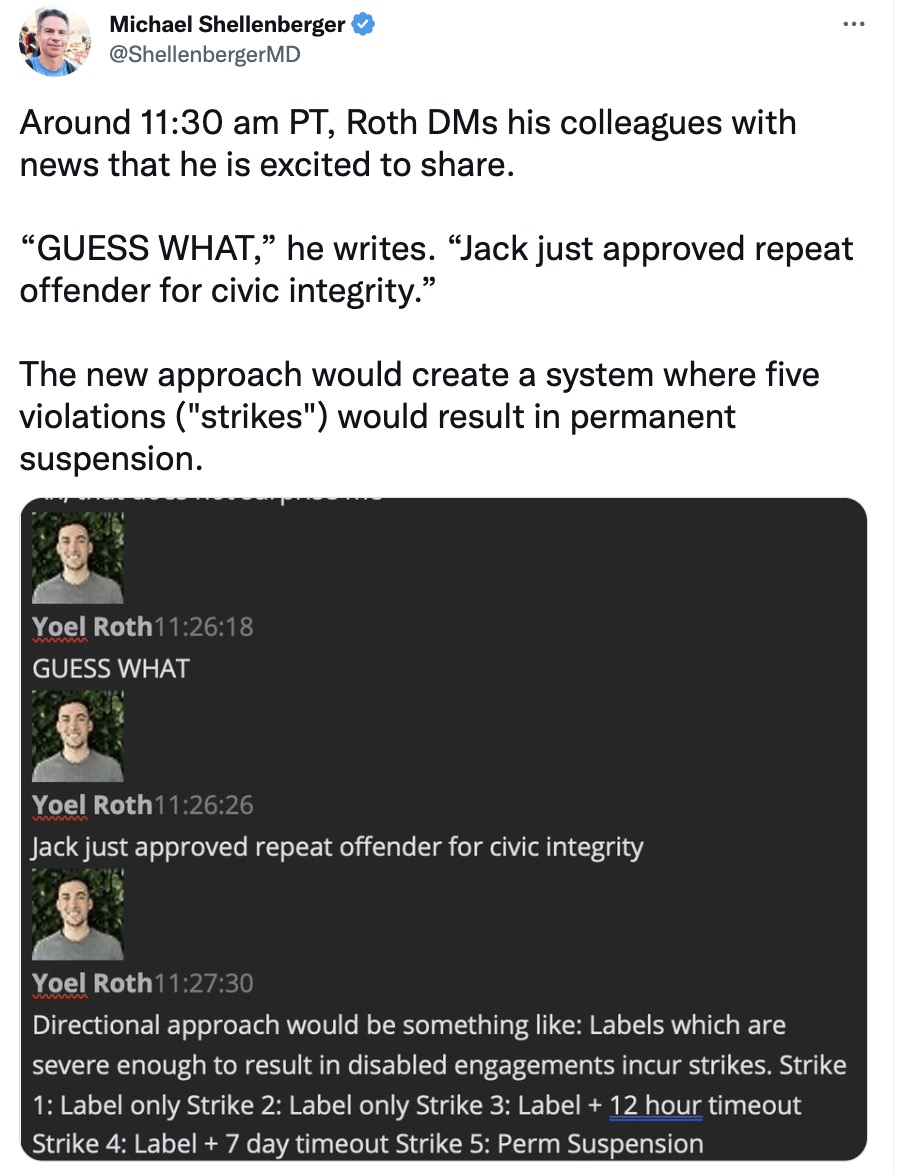
An employee asked Roth if that meant that Trump could be banned because he had one “remaining strike.” Roth said that Trump’s one strike remains and the policy is for “everything else.”
The next day, on January 8, Trump’s account was permanently suspended.
“On J8, Twitter says its ban is based on ‘specifically how [Trump’s tweets] are being received & interpreted,'” Shellenberger continues. “But in 2019, Twitter said it did ‘not attempt to determine all potential interpretations of the content or its intent.’”
Only one junior employee expressed concern over the ban, saying it was a “slippery slope” making “one-off ad hoc” decisions that are not “rooted in policy.”

“Twitter employees recognize the difference between their own politics & Twitter’s Terms of Service (TOS), but they also engage in complex interpretations of content in order to stamp out prohibited tweets, as a series of exchanges over the “#stopthesteal’ hashtag reveal,” Shellenberger wrote.
At noon the same day, a sales executive also sent a message to Roth asking about the ban.
“Sales exec: ‘jack says: ‘we will permanently suspend [Trump] if our policies are violated after a 12 hour account lock’… what policies is jack talking about?’ Roth: ‘*ANY*’ policy violation.”
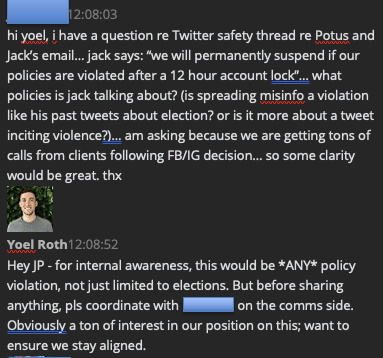
“Sales exec: ‘are we dropping the public interest [policy] now…’ Roth, six hours later: ‘In this specific case, we’re changing our public interest approach for his account…'”
“The ad exec is referring to Twitter’s policy of ‘Public-interest exceptions,’ which allows the content of elected officials, even if it violates Twitter rules, ‘if it directly contributes to understanding or discussion of a matter of public concern,” Shellenberger explained.
Later that say, a Twitter engineer reached out to Roth: “Trump’s account is not technically different from anybody else’ and yet treated differently due to his personal status, without corresponding Twitter rules to clarify the responsibilities that should come with that status.”
Roth’s reply shows how the platform justified deviating from its long-standing policy for one person: “To put a different spin on it: policy is one part of the system of how Twitter works… we ran into the world changing faster than we were able to either adapt the product or the policy.”
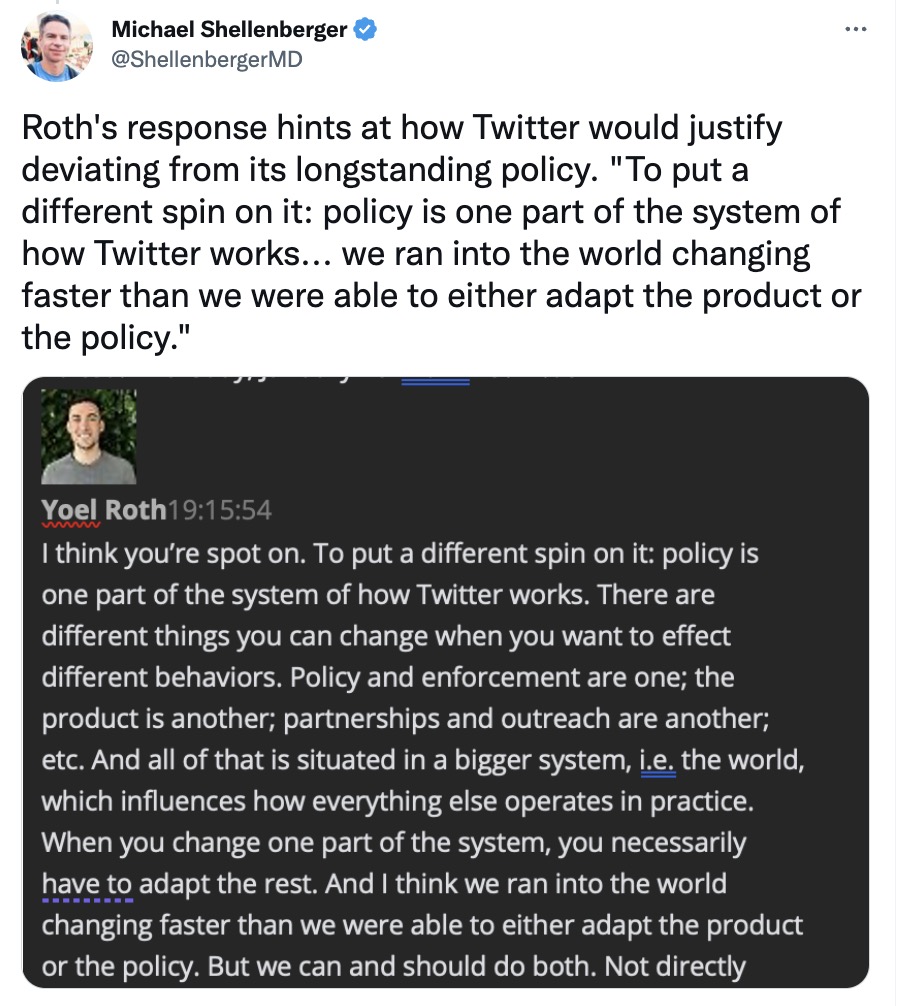
The junior employee wrote back that evening to express concern over the ban. He wrote: “My concern is specifically surrounding the unarticulated logic of the decision by FB. That space fills with the idea (conspiracy theory?) that all… internet moguls… sit around like kings casually deciding what people can and cannot see.”

